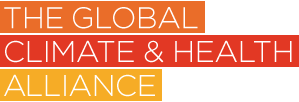
UN Photo/Tobin Jones – UN Image Library
Climate change impacts on health
The 2009 UCL-Lancet Commission stated that “climate change is the biggest global health threat of the 21st century”. The impacts of climate change on human health and well-being are being felt today. These effects are both direct – through extreme weather events, food and water insecurity and infectious diseases – and indirect – through economic instability, migration and as a driver of conflict. Rigorous epidemiological research carried out by the WHO has demonstrated that even the relatively modest warming seen between 1970 and 2004 resulted in detectable effects on human health, with an estimated 140,000 extra deaths per year attributable to climate change at this time. A more recent analysis suggests that as many as 400,000 deaths are attributable to climate change in 2010, with a significant increase in this figure expected by 2030.
In each case, the pathway(s) through which health is affected by climate change has multiple dimensions, many of them social and economic, and peoples’ and communities’ “adaptive capacity” is crucial in determining the extent of the impact of present and future climate change on their health. This is largely why the distribution of these health effects is so inequitable, often affecting children, women, and those in low-income countries disproportionately.
In this regard, climate change acts as a ‘force multiplier’, exacerbating many of the world’s global health challenges. Urgent and sustained emissions reductions, as well as effective adaptation, are needed to reduce these impacts.
